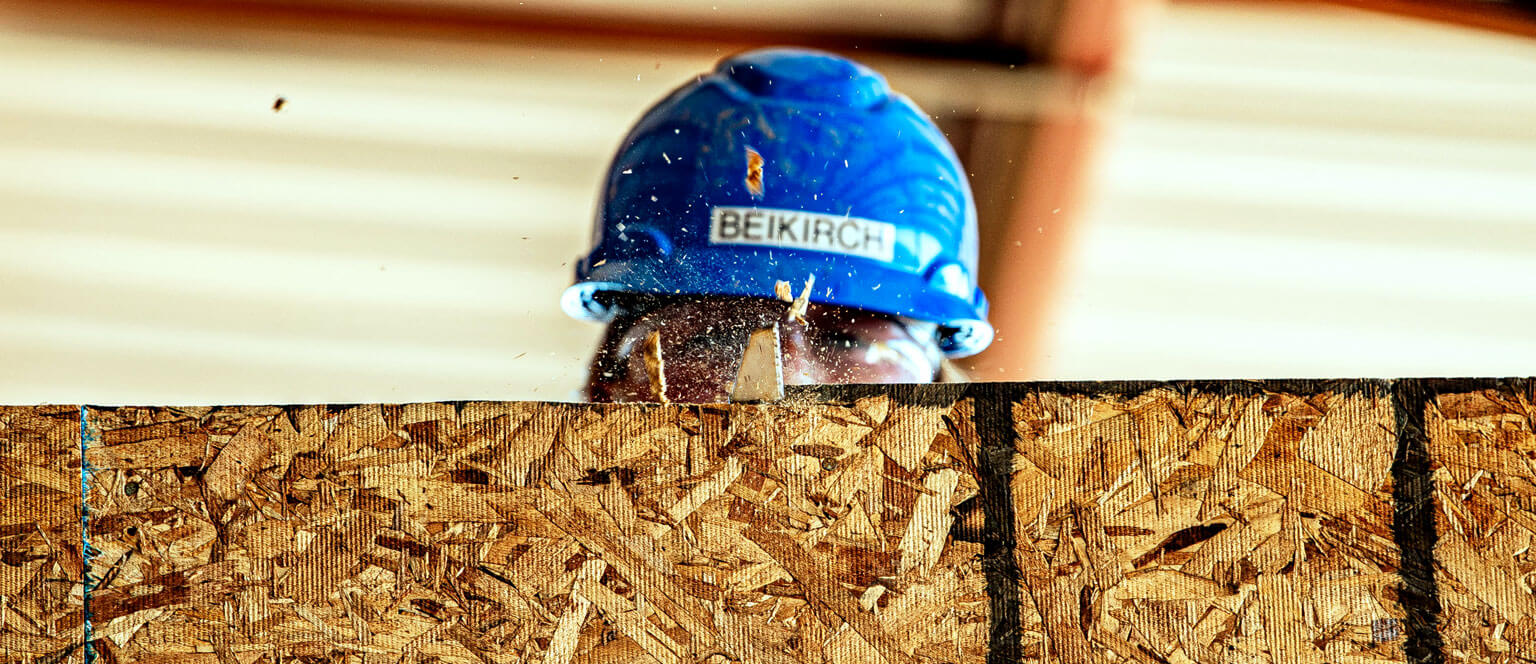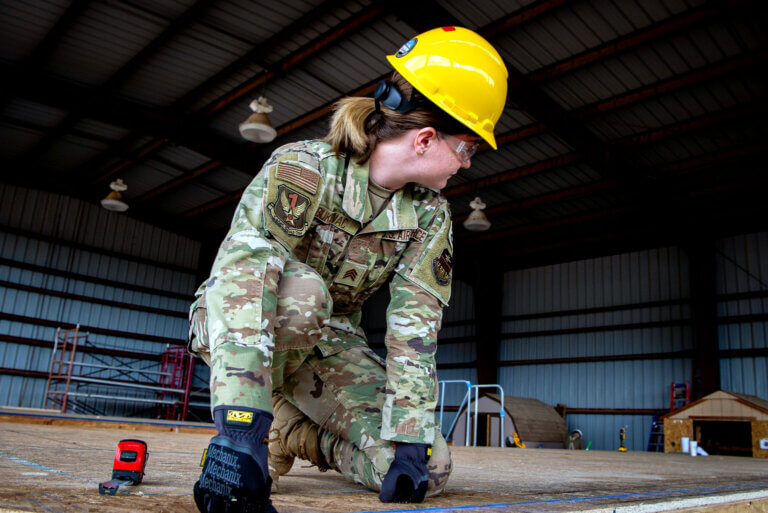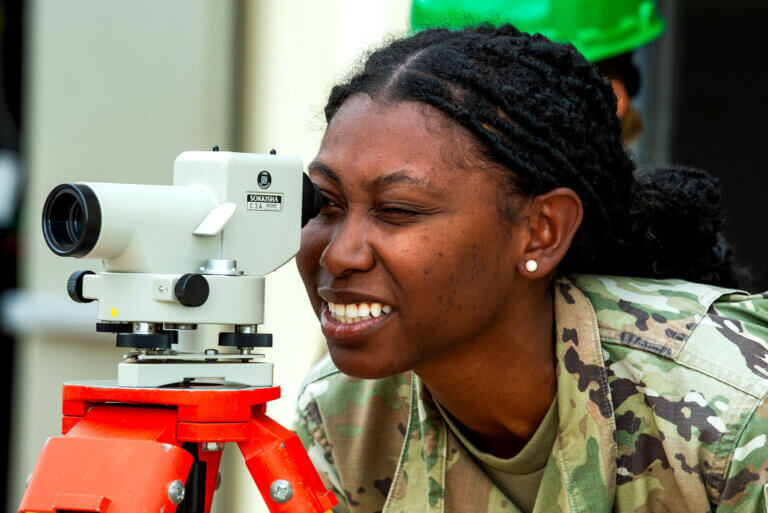FIELD ENGINEERING AND READINESS LABORATORY

The U.S. Air Force Academy’s Department of Civil & Environmental Engineering is committed to graduating officers with the leadership skills, motivation and technical competence to be future leaders of character in the Air Force.
To achieve this, the department implemented a systems approach to learning that bridges the gap between theory and practice—a concept that has evolved into the “construct first, design later” methodology for engineering education.
Being exposed to hands-on experiences in surveying, environmental concerns, geotechnical engineering, construction methods, and construction materials at the Field Engineering and Readiness Laboratory (FERL), provides cadets with a solid foundation for learning scientific theory and engineering design principles in more advanced courses later on in the curriculum. The first graduating class was in 1994.

How the Course is Run
Civil Engineering 351 is the entry-level course for cadets majoring in Civil Engineering for rising junior cadets across the Academy, Air Force ROTC, and sister service academies. This course is an integrated, two-phase program over a five-week period.
- Phase One – Operation Civil Engineering Air Force (OPS CEAF)
Cadets spend two weeks at an operational Air Force base to gain an appreciation of Air Force missions, support functions, and civil engineering capabilities. - Phase Two – FERL
During this three-week phase, cadets “deploy” to the FERL training area on the Academy to perform hands-on activities under the supervision and guidance of Air Force enlisted mentors and Department of Civil & Environmental Engineering faculty. Students gain experience working and living under field conditions, training in the various crafts of the civil engineer, and utilizing readiness assets that they will see in the operational Air Force.

Cadet Information
Academy Civil Engineering majors are automatically enrolled in CivEngr 351 and OPS CEAF. If you are currently in an ROTC program, you will see an announcement for Summer Officer Development Training Programs or if you are a cadet/midshipman at another military service academy, see your summer programs coordinator to apply.
Each cadet is assigned to a flight commanded by a first-class (senior) cadet during phase two. Cadets live and work with this flight during your three-weeks at FERL. To see which flight you are assigned to, reference the preparation checklists. Be sure to read and complete the preparation checklists well in advance, as these lists itemize the supplies you need to pack, as well as the immunization and special travel preparations required to participate in overseas travel.
BE A FERL MENTOR
The FERL program could not be successful without the contributions of Active-Duty, Guard, Air Reserve Component, and civilian personnel who serve as mentors for the cadets. Mentors provide functional expertise in their specialties and serve as role models in an advisory capacity. During FERL, mentors work alongside cadets on activities such as concrete placement, roadway construction, surveying, heavy equipment operations, power production, welding, and wood frame construction.
Types of Mentors
- Electricians – Instruct cadets in wiring residential buildings. Mentors must comprehend standard residential construction practices such as:
- Correct Romex® wiring
- Breaker panel wiring and installation
- Circuit breaker sizing and installation
- Outlet installation and switch installation
- General lighting installation
- Engineering Specialists – Demonstrate use of surveying equipment and monitor cadets’ progress during field surveying exercises. Mentors must be proficient with Autolevel and Total Station surveying procedures. Familiarity with GPS surveying is desirable. Applicants should also have working knowledge of concrete quality control and materials testing. Additional construction surveying experience (e.g., setting batter boards, foundation forms, etc.) should be noted in your application.
- Equipment Operators – Provide training on several pieces of heavy equipment. Operators must be proficient and licensed on at least three of the following types of equipment:
- Excavator
- Backhoe
- Loader
- Grader
- Dump truck
- Roller compactor
- Scraper
- Asphalt lay down machine
We will choose at least three proficient instructors for each type of equipment and at least four asphalt paving operators.
- Plumbers – Instruct cadets in installing residential plumbing systems. Mentors must be knowledgeable of the Uniform Plumbing Code requirements and standard residential construction practices such as roughing in supply and waste lines and installing fixtures.
- Power Production Specialists – Instruct cadets in air base readiness power production operations. Mentors must be able to teach fundamental principles with respect to:
- Basic concepts of current, voltage and resistance
- Parallel circuits
- Estimation of total current and power requirements
- Generator familiarization – fueling, starting, operation and shutdown
- Safety
- Power production scenarios
- Structural Technicians – Guide cadets through building a residential structure. Mentors must have a strong background in wood frame construction and comprehend all phases of construction including:
- Floor and wall framing
- Roofing
- Windows and personnel door installation
- Drywall
- Durasand and other interior wall materials
- Exterior and interior finish work